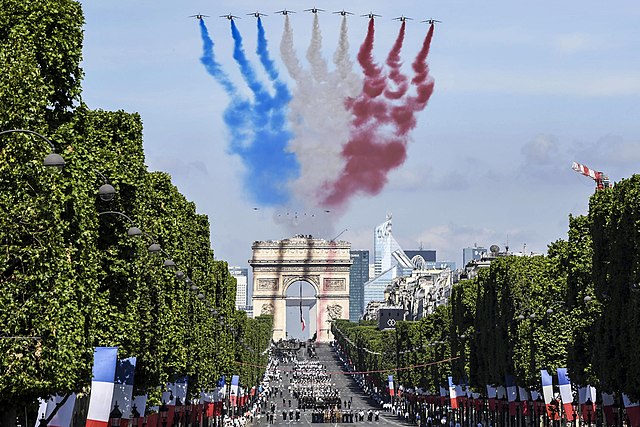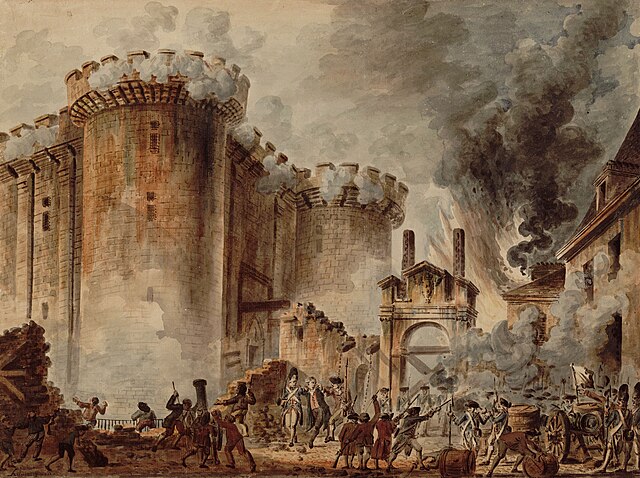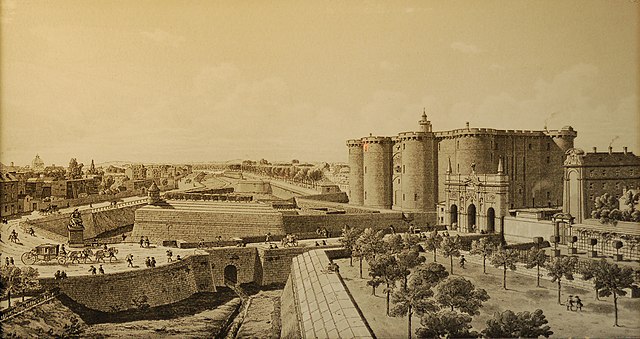Bastille Day is the common name given in English-speaking countries to the national day of France, which is celebrated on 14 July each year. In French, it is formally called the Fête nationale française ; legally it is known as le 14 juillet.
The Patrouille de France with nine Alpha Jets over the Champs-Élysées in Paris in 2017, during the Bastille Day military parade
Fête de la Fédération, Musée de la Révolution française
Claude Monet, Rue Montorgueil, Paris, Festival of 30 June 1878
Military parade during World War I
The Storming of the Bastille occurred in Paris, France, on 14 July 1789, when revolutionary insurgents attempted to storm and seize control of the medieval armoury, fortress and political prison known as the Bastille. After four hours of fighting and 94 deaths the insurgents were able to enter the Bastille. The governor de Launay and several members of the garrison were killed after surrender. The Bastille then represented royal authority in the centre of Paris. The prison contained only seven inmates at the time of its storming and was already scheduled for demolition, but was seen by the revolutionaries as a symbol of the monarchy's abuse of power. Its fall was the flashpoint of the French Revolution.
Storming of The Bastille, Jean-Pierre Houël
Jacques Necker (1732–1804), French minister of finance
The Bastille of Paris before the Revolution
People in the Castle of Bastille, (Musée de la Révolution française).








